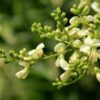**Harnessing the Healing Power of Rosa cymosa in Respiratory Therapy**

In the realm of natural remedies for respiratory ailments, Rosa cymosa emerges as a botanical gem, offering a spectrum of therapeutic compounds that have been cherished for centuries in traditional medicine. In this extensive guide, we embark on a journey to unlock the healing potential of Rosa cymosa in respiratory therapy, exploring its diverse applications and evidence-based benefits in promoting lung health and relieving respiratory symptoms.
### Understanding the Respiratory System: A Complex Network of Vital Functions
The respiratory system plays a fundamental role in sustaining life, facilitating the exchange of oxygen and carbon dioxide between the body and the environment. Comprising organs such as the nose, throat, lungs, and diaphragm, the respiratory system functions as a complex network of airways, tissues, and structures that regulate breathing, oxygenation, and gas exchange, supporting vital functions such as respiration, circulation, and immune defense.
### Respiratory Ailments: Common Challenges to Lung Health
Despite its resilience and adaptability, the respiratory system is susceptible to a myriad of ailments and disorders that can compromise lung function, impair breathing, and diminish overall well-being. From acute infections such as colds, flu, and pneumonia to chronic conditions such as asthma, bronchitis, and COPD (Chronic Obstructive Pulmonary Disease), respiratory ailments pose significant challenges to respiratory health, quality of life, and longevity.
### Rosa cymosa in Respiratory Therapy: Mechanisms of Action and Therapeutic Benefits
In the quest for effective respiratory remedies, Rosa cymosa emerges as a botanical powerhouse, endowed with a rich array of bioactive compounds that exert diverse pharmacological effects on the respiratory system. From anti-inflammatory and antimicrobial properties to bronchodilator and expectorant actions, Rosa cymosa offers a holistic approach to respiratory therapy that targets multiple facets of respiratory health and function.
#### Anti-Inflammatory Action: Soothing Airway Inflammation
Inflammation plays a central role in many respiratory conditions, contributing to airway constriction, mucus production, and breathing difficulties. Rosa cymosa contains anti-inflammatory compounds such as flavonoids, phenolic acids, and terpenoids, which help reduce inflammation, alleviate airway swelling, and improve respiratory symptoms in conditions such as asthma, bronchitis, and allergic rhinitis.
#### Antimicrobial Activity: Fighting Respiratory Infections
Respiratory infections caused by bacteria, viruses, and fungi pose a significant threat to respiratory health, triggering symptoms such as cough, congestion, and difficulty breathing. Rosa cymosa exhibits broad-spectrum antimicrobial activity against respiratory pathogens, thanks to its potent phytochemicals such as tannins, saponins, and essential oils, which inhibit microbial growth, enhance immune response, and support recovery from respiratory infections.
#### Bronchodilator Effects: Relaxing Airway Smooth Muscle
Bronchospasm, characterized by sudden narrowing of the airways, is a hallmark feature of conditions such as asthma and COPD, leading to wheezing, shortness of breath, and chest tightness. Rosa cymosa’s bronchodilator effects help relax airway smooth muscle, widen bronchial passages, and improve airflow to the lungs, providing relief from bronchospasm and promoting easier breathing in individuals with respiratory conditions.
#### Expectorant Action: Clearing Mucus and Phlegm
Excessive mucus production and phlegm accumulation can exacerbate respiratory symptoms, obstruct airways, and impair lung function, particularly in conditions such as bronchitis, sinusitis, and COPD. Rosa cymosa acts as an expectorant, facilitating the clearance of mucus and phlegm from the respiratory tract, thinning secretions, and promoting coughing to expel respiratory debris and pathogens, thereby alleviating congestion and improving respiratory function.
### Practical Applications: Incorporating Rosa cymosa into Respiratory Care
Integrating Rosa cymosa into respiratory care offers a natural, holistic approach to supporting lung health, relieving respiratory symptoms, and enhancing overall well-being. Whether used as herbal remedies, dietary supplements, or aromatherapy agents, Rosa cymosa lends itself to a variety of practical applications that cater to individual preferences and therapeutic needs.
#### Herbal Remedies: Infusions, Decoctions, and Tinctures
Brewing Rosa cymosa flowers or leaves into herbal teas, infusions, or decoctions provides a soothing and therapeutic way to deliver its respiratory benefits. Simply steep dried Rosa cymosa petals or leaves in hot water for several minutes, strain, and sip as desired to soothe inflamed airways, relieve congestion, and promote respiratory comfort.
#### Dietary Supplements: Capsules, Tablets, and Syrups
Supplementing with Rosa cymosa extracts or tinctures in capsule, tablet, or syrup form offers a convenient way to incorporate its therapeutic compounds into your daily regimen. Look for standardized Rosa cymosa supplements that provide bioavailable forms of its active ingredients, such as flavonoids, terpenes, and phenolic acids, to support respiratory health and immune function.
**Part 2: Practical Strategies for Utilizing Rosa cymosa in Respiratory Therapy**
As we continue our exploration of Rosa cymosa’s therapeutic potential in respiratory care, we delve into practical strategies and evidence-based approaches for harnessing its healing properties to address a wide range of respiratory ailments and promote lung health. From herbal preparations to lifestyle interventions, let’s uncover the diverse ways in which Rosa cymosa can be incorporated into respiratory therapy to optimize respiratory function and well-being.
### Herbal Preparations: Crafting Customized Remedies for Respiratory Relief
Herbal preparations offer a versatile and customizable approach to respiratory therapy, allowing individuals to tailor treatments to their specific needs and preferences. By harnessing the therapeutic compounds present in Rosa cymosa, such as flavonoids, terpenes, and phenolic acids, herbal remedies can provide targeted relief for respiratory symptoms while supporting overall lung health.
#### Herbal Teas and Infusions: A Soothing Brew for Respiratory Comfort
Brewing Rosa cymosa flowers or leaves into herbal teas and infusions is a time-honored tradition for promoting respiratory health and alleviating respiratory discomfort. To prepare a soothing respiratory tea, steep dried Rosa cymosa petals or leaves in hot water for 5-10 minutes, then strain and enjoy. Adding honey or lemon can enhance the flavor and therapeutic benefits of the tea, providing additional soothing and antimicrobial properties.
#### Herbal Steam Inhalations: Clearing Congestion and Opening Airways
Steam inhalations infused with Rosa cymosa essential oil or dried petals offer a potent remedy for clearing congestion, opening airways, and promoting respiratory comfort. Simply add a few drops of Rosa cymosa essential oil or a handful of dried petals to a bowl of hot water, cover your head with a towel, and inhale the steam deeply for 5-10 minutes. The aromatic vapors help loosen mucus, soothe inflamed airways, and provide immediate relief from respiratory symptoms.
#### Herbal Tinctures and Extracts: Convenient and Concentrated Respiratory Support
Tinctures and extracts made from Rosa cymosa provide a convenient and concentrated form of respiratory support, delivering a potent dose of its therapeutic compounds in a small, easy-to-administer format. Simply add a few drops of Rosa cymosa tincture or extract to water, juice, or tea, or take it directly under the tongue for fast absorption and effective relief of respiratory symptoms. Look for high-quality, standardized preparations to ensure optimal potency and efficacy.
### Dietary Supplements: Supporting Respiratory Health from Within
In addition to herbal remedies, dietary supplements containing Rosa cymosa extracts offer a convenient way to support respiratory health from within, providing a concentrated source of its bioactive compounds to optimize lung function and enhance immune defense against respiratory infections and allergens.
#### Capsules and Tablets: Daily Support for Respiratory Wellness
Capsules and tablets containing Rosa cymosa extracts are ideal for daily supplementation, providing a consistent and standardized dose of its therapeutic compounds to support respiratory wellness and immune function. Incorporating Rosa cymosa supplements into your daily routine can help strengthen lung defenses, reduce the frequency and severity of respiratory infections, and promote overall respiratory resilience.
#### Syrups and Elixirs: Soothing Relief for Respiratory Symptoms
Syrups and elixirs infused with Rosa cymosa extracts offer a delicious and soothing way to alleviate respiratory symptoms such as cough, congestion, and throat irritation. Whether taken alone or added to hot water or tea, Rosa cymosa syrups provide targeted relief for respiratory discomfort, while also delivering immune-boosting and antimicrobial benefits to support respiratory health and recovery.
### Lifestyle Interventions: Cultivating Respiratory Wellness Holistically
In addition to herbal remedies and dietary supplements, lifestyle interventions play a crucial role in promoting respiratory wellness and optimizing lung function. By adopting healthy habits and environmental modifications, individuals can reduce their risk of respiratory ailments, enhance lung capacity, and improve overall respiratory health and vitality.
#### Breathing Exercises: Strengthening Lung Function and Capacity
Practicing deep breathing exercises, such as diaphragmatic breathing, pursed-lip breathing, and yogic pranayama techniques, can help strengthen lung muscles, improve oxygenation, and enhance respiratory efficiency. Incorporating regular breathing exercises into your daily routine can expand lung capacity, increase respiratory endurance, and promote relaxation, thereby supporting optimal respiratory function and well-being.
#### Air Quality Optimization: Minimizing Respiratory Triggers and Irritants
Optimizing indoor air quality is essential for maintaining respiratory health and minimizing exposure to respiratory triggers and irritants. By using air purifiers, humidifiers, and ventilation systems, individuals can reduce indoor pollutants such as allergens, pollutants, and respiratory irritants, creating a clean and breathable environment that supports respiratory comfort and well-being.
#### Immune Support: Strengthening Respiratory Defenses Naturally
Supporting immune health is crucial for defending against respiratory infections and maintaining respiratory wellness year-round. Incorporating immune-boosting nutrients such as vitamin C, zinc, and antioxidants into your diet, practicing good hygiene habits such as handwashing and respiratory etiquette, and getting adequate rest and exercise can help strengthen respiratory defenses and reduce susceptibility to respiratory ailments.
### Conclusion: Empowering Respiratory Health with Rosa cymosa
In conclusion, Rosa cymosa offers a wealth of therapeutic benefits for respiratory health and well-being, from soothing inflammation and clearing congestion to supporting immune defense and enhancing lung function. By integrating Rosa cymosa into herbal remedies, dietary supplements, and lifestyle interventions, individuals can empower their respiratory health holistically, optimizing lung function, reducing respiratory symptoms, and promoting overall respiratory wellness.
Whether used as a soothing herbal tea, a concentrated dietary supplement, or an aromatic steam inhalation, Rosa cymosa invites us to explore the diverse ways in which nature’s botanical treasures can support respiratory health and vitality. By embracing the healing power of Rosa cymosa and incorporating it into our daily lives, we can breathe easier, live healthier, and thrive in harmony with our respiratory system and the natural world.


